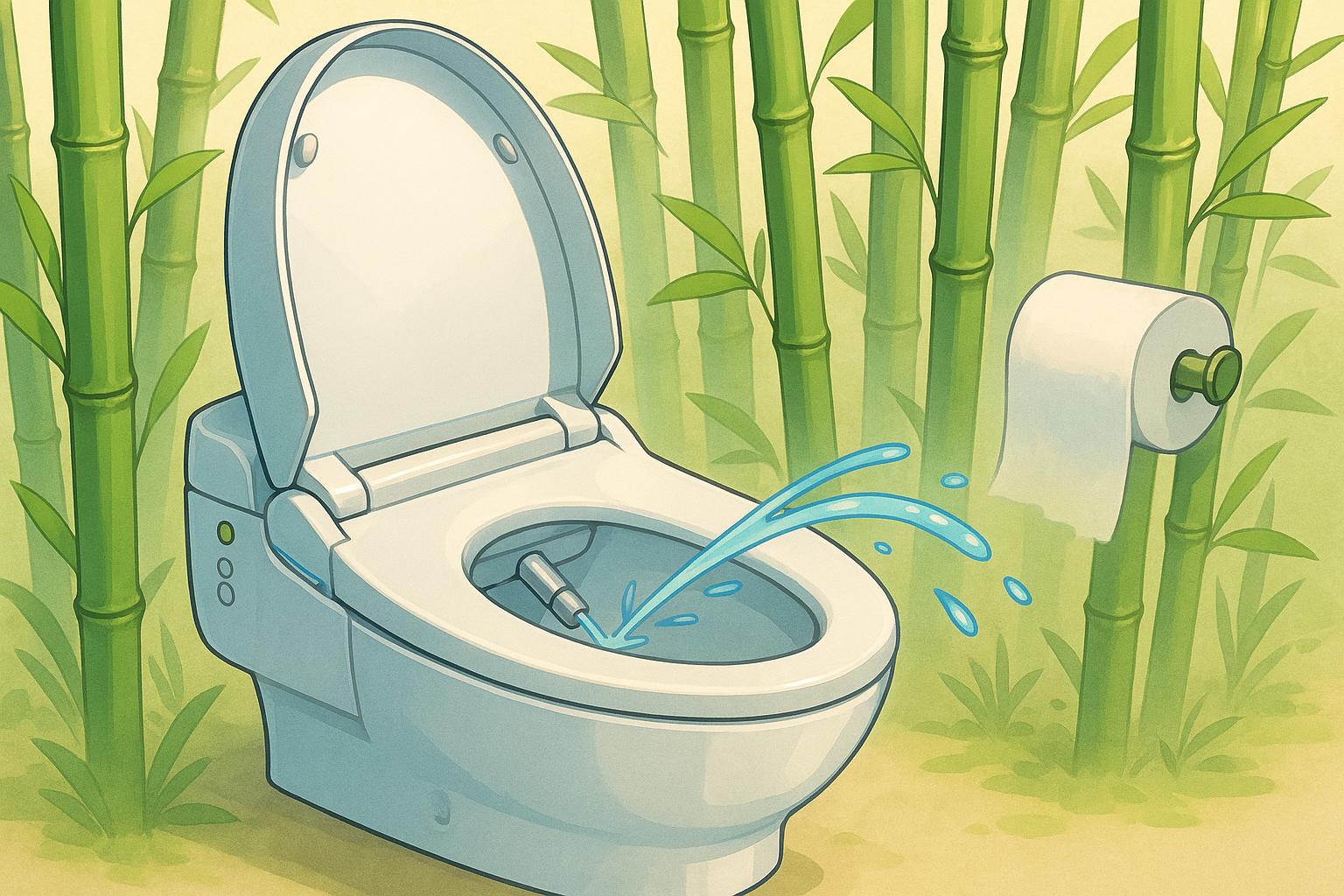The impending shift away from traditional toilet paper signifies a substantial evolution in personal hygiene practices, driven by a blend of environmental awareness, health considerations, and cultural differences. As consumers become increasingly conscientious about their ecological footprint, it appears that the familiar bathroom staple could soon be rendered obsolete by more sustainable alternatives.
Toilet paper, despite widespread belief in its environmental friendliness due to its biodegradable nature, carries a considerable ecological impact largely unrecognised by the average user. The production process of toilet paper is resource-intensive, consuming vast amounts of fresh wood pulp, particularly for luxuriously soft varieties favoured by many. This reliance on virgin materials fosters significant deforestation, with millions of trees felled annually for this purpose. A report from the Natural Resources Defense Council has highlighted the connection between leading brands and the destruction of ancient forests, particularly in Canada, thereby raising questions about the true cost of comfort over sustainability.
Moreover, the water consumption involved in toilet paper production exacerbates its environmental toll. Huge amounts of water are required to convert timber into the final product, and the chemical treatments necessary to whiten and soften the paper can introduce harmful toxins into our waterways. Research conducted by scientists at the University of Florida uncovered alarming levels of per- and polyfluoroalkyl substances (PFAS) in toilet paper—these “forever chemicals” are associated with multiple health risks and suggest that toilet paper is a significant contributor to PFAS contamination in wastewater systems.
Historically, the evolution of bathroom hygiene offers a fascinating glimpse into human adaptability. While records from as early as the 6th century BCE in China mention toilet paper, various cultures have campaigned for alternative cleansing methods long before its popularisation. From the communal sponges used in ancient Rome to water-based systems commonly found across the Middle East and parts of Asia, many societies have thrived without the use of paper products. In countries like Egypt and India, bathrooms often feature dedicated water delivery systems, which not only challenge the necessity for toilet paper but may also inspire modern solutions to cleaning.
Bidets have emerged as one of the most established alternatives to toilet paper, offering thorough cleansing with minimal environmental impact. Traditional versions have been common in European households for centuries, while modern electronic models have revolutionised this approach with features that enhance user experience, such as adjustable water temperature and pressure. Japanese innovation has taken this a step further, with sophisticated bidet systems that integrate drying functions, effectively diminishing the need for any paper products entirely.
For those unable to install fixed bidet systems, portable bidet bottles represent an accessible and affordable option. These devices deliver targeted water streams and are increasingly popular among environmentally-aware consumers. Health professionals advocate for water-based cleansing as it tends to be more effective than paper, significantly reduces irritation risks, and proves beneficial for individuals with specific medical conditions.
Amid discussions of water-based solutions, reusable cloths made from organic materials like cotton or bamboo have surfaced as another option for the eco-conscious. Despite initial hygiene concerns surrounding these products, proper washing methods have been shown to adequately sanitise them. The increasing acceptance of reusable menstrual products has helped normalise their use in other areas, including personal hygiene, showcasing a broader cultural shift towards sustainability.
The market is also seeing innovations in disposable alternatives. Bamboo toilet paper is gaining traction as it biodegrades faster than traditional options and requires considerably less resource input during production. As consumer awareness grows, manufacturers must rise to meet this emerging demand with environmentally-responsible practices—some have even begun developing hybrid solutions featuring water-activated cleansing agents on biodegradable bases.
The conversation surrounding the disappearance of toilet paper encapsulates a larger movement towards sustainable living, echoing changes observed in other sectors ranging from digital privacy to environmental protection. As individuals increasingly consider the impact of their purchases, it becomes imperative for companies to provide responsible alternatives that reflect this evolving consciousness. The landscape of personal hygiene is on the cusp of a significant transformation, one that prioritises both ecological health and consumer comfort.
Source: Noah Wire Services
